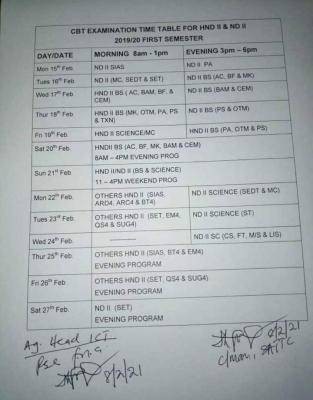
When you go to college for the very first time, you're filled with complicated mixed thoughts - involved in the fear at living home for the very first time, and enthusiasm at the independence you're going to appreciate.
You could easily forget that academics are the main reason for getting yourself on board to start with! Unless you intentionally build decent study habits for college, the workload could possibly get away from you. You do not want that to happen!
Don't lose hope, however. There are certainly techniques to apply good study habits for college so that you can thrive academically, while you're still having the perfect time.
Listed here are the useful study habits that can make your academic successful.
1. Make Study Schedule
Before putting yourself into studying, you ought to make a good study schedule. A study schedule works best when it is followed regularly. You should aim to develop a study schedule that you could follow for the period of each semester in the college. Since the majority of students enroll in various classes every semester, you will need to reevaluate your schedule and improve it every semester. Keep in mind, the most essential thing is sticking with your schedule.
Making and following a study schedule could help you concentrate and appropriately manage your time.
i. Develop a plan
Now that you've determined times and days for studying, make a spot in your planner or calendar. Use comprehensive notes to block times on your calendar so you are reminded whenever you look at it. It is advisable to have a schedule put on paper so you do not forget. Seeing it on paper will make it seem more valuable, such as a doctor’s scheduled appointment you should not miss. Also, it's beneficial to make note of the subject you intend to study, so you could be sure to dedicate sufficient time to any of your classes.
ii. List out all the subjects you want to study.
If you've a learning guide or a textbook with review sections, make use of it to narrow down everything you list. After you have your list, position the subjects by how bold or comfortable you feel about each subject. You could note them with minimum, moderately or mostly. In this way, you could focus more time and effort on problem areas.
iii. Schedule study times between 20 to 30 minutes.
Shorter times are much easier to find and to fix compared to longer times. With 20 to 30 minute limits, you actually create breaks. By doing this, you could stretch your legs, rest tired eyes and perhaps get a healthier snack.
iv. Stick with the study schedule.
There is no point in making a schedule if you do not stay with it, however it may be hard to begin with. Try to start by looking at your planner/ calendar every day. It’ll help you keep off from the "out of mind, out of sight" trap. Once you have created a routine, you may begin emotionally associating some acts, like opening of the textbook or sitting on a desk, with a study manner. By quickly getting your studying mind-set, you could more easily avoid distractions and concentrate on the material you're studying.
2. Reviewing Materials/Notes Regularly
Before you can start studying in the college, decent study habits start much earlier. To appropriately study, it is important you review the material regularly from seminars, lectures, and textbooks in a regular manner. Follow the habit of:
i. Reviewing Your Notes On a daily basis
Edit your course notes as quickly as possible after class to fill any gaps. Re-read and skim for understanding. Ensure you collect all relevant handouts to ensure everything is ordered. Review your course notes prior to the next class.
ii. Reviewing Your Notes Weekly
By the end of every week, read through your notes to make sure you understand the content. Reword any course notes if they're too messy or disorganized. Arrange your notes into binders or file folders. Make sure the notes are put in sequence along with other notes. Make brief summary on the crucial concepts and information. Examine how the material covered pertains to the course.
Read your notes and ensure you understand them totally and study them by heart. There're two main things to memorization. If you've a visual memory, then simply writing your notes on cards may do you good. If you've an auditory memory, then reading aloud is what you must do.
After you've finished reading the notes, give yourself a quiz. This would make you completely comprehend your classes well and will also give you a concept as to which part needs to be given much more time.
Part 2 to be posted soon...




